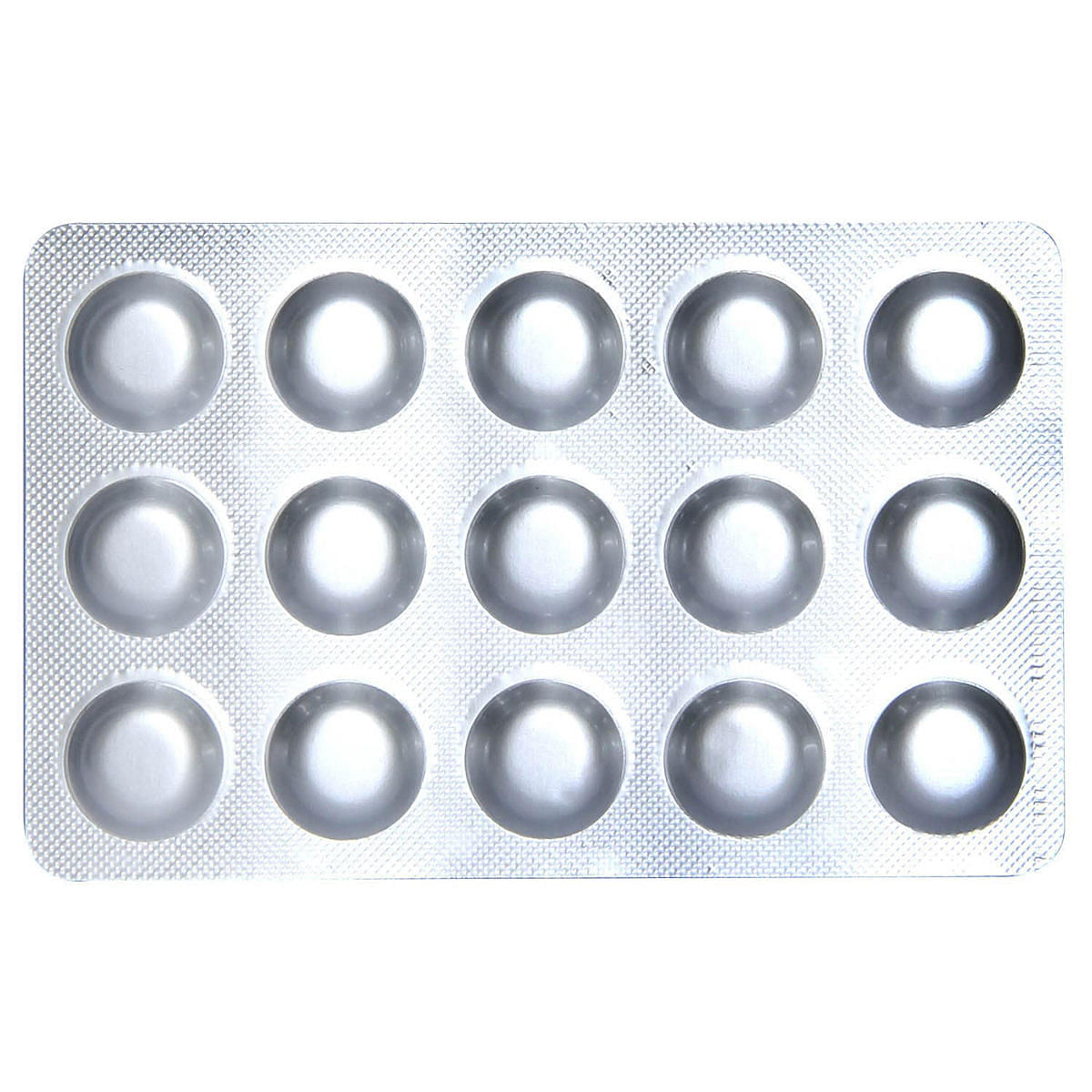
Vertistop 8mg Tablet
Manufacturer
Ind Swift Laboratories Ltd
Salt Composition
Betahistine (8mg)
Key Information
Short Description
Vertistop 8mg Tablet is used to prevent and treat Ménière's disease, a disorder of the inner ear, by reducing the amount of fluid and relieving symptoms such as dizziness, ringing in the ears, and loss of hearing.
Dosage Form
Tablet
Introduction
Vertistop 8mg Tablet should be swallowed whole with water and taken at the same time(s) each day to get the most benefit. Your doctor will decide what is the correct dose to relieve your symptoms and how often you need to take it. You may need to take this medicine for several months and you should take it for as long as prescribed by your doctor even if you start feeling better. The most common side effects include headache, feeling sick, and indigestion (dyspepsia). You may also get stomach pain and bloating. Taking the medicine with food can help reduce stomach problems.
Directions for Use
Take this medicine in the dose and duration as advised by your doctor. Swallow it as a whole. Do not chew, crush or break it. Vertistop 8mg Tablet may be taken with or without food but it is better to take it at a fixed time.
Safety Information
Side Effects
Headache Feeling sick Indigestion (dyspepsia) Stomach pain Bloating
Alcohol Warning
Consuming alcohol with Vertistop 8mg Tablet does not cause any harmful side effects.
Breastfeeding Warning
Vertistop 8mg Tablet is probably unsafe to use during breastfeeding. Limited human data suggests that the drug may pass into the breastmilk and harm the baby.
Pregnancy Warning
Vertistop 8mg Tablet may be unsafe to use during pregnancy. Although there are limited studies in humans, animal studies have shown harmful effects on the developing baby. Your doctor will weigh the benefits and any potential risks before prescribing it to you. Please consult your doctor.
Interacting Medicines
Astemizole Azelastine Buclizine Cetirizine
How it works
Vertistop 8mg Tablet is a histamine analog. It works by improving the blood flow in the inner ear which reduces the pressure of excess fluid there. Excess fluid can send signals to the brain causing nausea, dizziness or spinning sensations (symptoms of Ménière's disease). Vertistop 8mg Tablet additionally dampens down the nerve signals sent from the inner ear to the brain relieving the symptoms of Ménière's disease.
Quick Tips
You have been prescribed Vertistop 8mg Tablet to relieve vertigo (dizziness), hearing problems and tinnitus (noise in the ear) associated with Ménière's disease. It can only decrease the number and severity of attacks but may not completely stop them. Taking it with food can help reduce stomach problems. Take it at the same time each day to maintain a steady amount of the medicine in your body. Inform your doctor if you have a history of stomach ulcer, asthma, or low blood pressure. Inform your doctor if you are pregnant, planning pregnancy or breastfeeding. Do not stop taking the medicine suddenly without talking to your doctor first.
Related Medicines

Vertin 8 Tablet

Betavert Tablet

Vectra 8mg Tablet

Betahans 8mg Tablet

TIGO 8mg Tablet

Alvex 8mg Tablet

Vertiget 8mg Tablet

Bixro 8mg Tablet

Vertisrin 8mg Tablet

Emidas 8mg Tablet
Frequently asked questions
What is Meniere's disease? Does it go away?
Meniere's disease is a disorder of the balance and hearing organs in the inner ear, characterized by symptoms such as vertigo, fluctuations in hearing, tinnitus (ringing of the ears), pressure in the ears, dizziness, nausea, and vomiting. While there is no cure for Meniere's disease, various treatment options are available to manage its symptoms and improve quality of life.
Is Vertistop 8mg Tablet effective?
Vertistop 8mg Tablet has been found to be effective in treating vertigo and other balance-related disorders when used as directed by a healthcare professional. It is essential to follow the prescribed dosage and duration of treatment to ensure optimal results.
What are the triggers for Meniere's disease?
Meniere's disease can be triggered by various factors, including stress, fatigue, emotional distress, additional illnesses, pressure changes, certain foods like dairy products, caffeine, alcohol, and high-sodium content. A low-salt diet (less than 2 grams per day) may help control vertigo symptoms in some individuals.
What if I forget to take a dose of Vertistop 8mg Tablet?
If you miss a dose of Vertistop 8mg Tablet, take it as soon as you remember. However, if it is almost time for your next dose, skip the missed dose and resume your regular dosing schedule. Do not double the dose to make up for the missed one, as this may increase the risk of side effects.
Is stress a reason for vertigo?
Yes, mental stress can trigger or exacerbate vertigo symptoms in some individuals. While stress itself does not cause vertigo, it can worsen its symptoms.
What are the causes of vertigo?
Vertigo can be caused by various factors, including a sudden drop in blood pressure, dehydration, rapid changes in environment (e.g., motion sickness), certain medications, and inner ear problems like Meniere's disease or acoustic neuroma. In some cases, vertigo may be a symptom of other underlying conditions, such as multiple sclerosis or head trauma.
How long should Vertistop 8mg Tablet be taken?
The duration of treatment with Vertistop 8mg Tablet varies depending on individual responses to the medication. Some people may experience rapid improvement, while others may take longer to notice results. It is essential to follow your healthcare professional's guidance and complete the full course of treatment as prescribed.
What are the common side effects of Vertistop 8mg Tablet?
The most commonly reported side effects of Vertistop 8mg Tablet include mild stomach problems such as vomiting, stomach pain, bloating, and abdominal distension. Taking the medication with food may help reduce these side effects.
Is Vertistop 8mg Tablet effective?
Vertistop 8mg Tablet has been found to be effective in treating vertigo and other balance-related disorders when used as directed by a healthcare professional. It is essential to follow the prescribed dosage and duration of treatment to ensure optimal results.
What if I forget to take a dose of Vertistop 8mg Tablet?
If you miss a dose of Vertistop 8mg Tablet, take it as soon as you remember. However, if it is almost time for your next dose, skip the missed dose and resume your regular dosing schedule. Do not double the dose to make up for the missed one, as this may increase the risk of side effects.
How long should Vertistop 8mg Tablet be taken?
The duration of treatment with Vertistop 8mg Tablet varies depending on individual responses to the medication. Some people may experience rapid improvement, while others may take longer to notice results. It is essential to follow your healthcare professional's guidance and complete the full course of treatment as prescribed.


